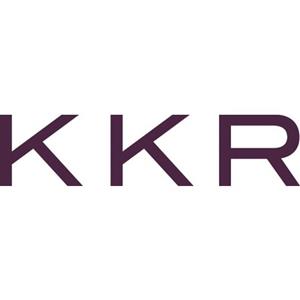The Battle for Fuji Soft: Bain vs. KKR
October 18, 2024, 9:57 pm
The landscape of corporate acquisitions is often a battlefield. In this case, the prize is Fuji Soft, a prominent Japanese software developer. The stakes are high, and the players are formidable. Bain Capital and KKR, two titans of private equity, are vying for control. Each has its strategy, its supporters, and its vision for the future of Fuji Soft.
The saga began when KKR made its move. In August, the firm offered 8,800 yen per share, valuing Fuji Soft at approximately $3.72 billion. This initial bid was met with cautious optimism. The board of Fuji Soft backed KKR's offer, believing it to be a solid foundation for future growth. But the tides shifted dramatically when Bain Capital entered the fray.
On October 11, Bain made a bold counter-offer. They proposed 9,450 yen per share, a staggering 7% increase over KKR's bid. This move sent ripples through the corporate world. Bain's offer valued Fuji Soft at around $4 billion, making it a tempting proposition for shareholders. The stakes were raised, and the board found itself at a crossroads.
Hiroshi Nozawa, the founder of Fuji Soft, emerged as a key player in this drama. He expressed his support for Bain's bid in a letter to the company. Nozawa's backing is significant. He and his family hold 18.5% of Fuji Soft's shares. His endorsement could sway other shareholders. In the world of acquisitions, a founder's voice carries weight.
Bain's strategy is clear. They plan to launch a tender offer process by the end of October. This process will hinge on the board's approval. If the board aligns with Bain, the acquisition could proceed swiftly. However, KKR is not backing down. They continue to push their initial offer, hoping to sway the board and shareholders alike.
The dynamics of this battle are fascinating. KKR has been a familiar player in Japan's private equity scene for years. Their initial offer was a calculated move, designed to establish a foothold in the market. However, Bain's aggressive counter-offer has changed the game. They are not just looking to acquire; they are looking to dominate.
The board's decision will be pivotal. They must weigh the benefits of KKR's initial offer against Bain's higher bid. This is not just about numbers; it's about vision. Bain promises a future where Fuji Soft can thrive, innovate, and expand. KKR's offer, while lower, may still hold appeal for those who value stability over potential.
As the clock ticks down, the pressure mounts. Shareholders are watching closely. They want to know which direction the board will take. Will they align with the founder's vision and support Bain? Or will they stick with KKR, the bird in hand?
In the world of corporate acquisitions, timing is everything. Bain's swift move has put KKR on the defensive. They must now respond with urgency. The next few weeks will be crucial. The tender offer process will reveal the board's stance. Will they embrace change, or cling to the familiar?
This battle is more than just a financial transaction. It represents a clash of ideologies. Bain Capital embodies a vision of aggressive growth and innovation. KKR, on the other hand, offers a more conservative approach. This dichotomy reflects broader trends in the corporate world. Companies must choose between risk and reward.
The implications of this acquisition extend beyond Fuji Soft. The outcome will send signals to other companies in Japan and beyond. It will influence how private equity firms approach acquisitions in the future. The battle for Fuji Soft is a microcosm of larger trends in the global economy.
As the dust settles, one thing is clear: the stakes are high. The future of Fuji Soft hangs in the balance. The board's decision will shape the company's trajectory for years to come. Will they choose the bold path with Bain, or the steady course with KKR?
In the end, this is a story of ambition, strategy, and vision. It’s a reminder that in the world of business, every decision counts. The battle for Fuji Soft is just beginning, and the outcome remains uncertain. But one thing is for sure: the corporate world will be watching closely. The winner will not only gain a company but also a significant foothold in the ever-evolving landscape of technology and innovation.
The saga began when KKR made its move. In August, the firm offered 8,800 yen per share, valuing Fuji Soft at approximately $3.72 billion. This initial bid was met with cautious optimism. The board of Fuji Soft backed KKR's offer, believing it to be a solid foundation for future growth. But the tides shifted dramatically when Bain Capital entered the fray.
On October 11, Bain made a bold counter-offer. They proposed 9,450 yen per share, a staggering 7% increase over KKR's bid. This move sent ripples through the corporate world. Bain's offer valued Fuji Soft at around $4 billion, making it a tempting proposition for shareholders. The stakes were raised, and the board found itself at a crossroads.
Hiroshi Nozawa, the founder of Fuji Soft, emerged as a key player in this drama. He expressed his support for Bain's bid in a letter to the company. Nozawa's backing is significant. He and his family hold 18.5% of Fuji Soft's shares. His endorsement could sway other shareholders. In the world of acquisitions, a founder's voice carries weight.
Bain's strategy is clear. They plan to launch a tender offer process by the end of October. This process will hinge on the board's approval. If the board aligns with Bain, the acquisition could proceed swiftly. However, KKR is not backing down. They continue to push their initial offer, hoping to sway the board and shareholders alike.
The dynamics of this battle are fascinating. KKR has been a familiar player in Japan's private equity scene for years. Their initial offer was a calculated move, designed to establish a foothold in the market. However, Bain's aggressive counter-offer has changed the game. They are not just looking to acquire; they are looking to dominate.
The board's decision will be pivotal. They must weigh the benefits of KKR's initial offer against Bain's higher bid. This is not just about numbers; it's about vision. Bain promises a future where Fuji Soft can thrive, innovate, and expand. KKR's offer, while lower, may still hold appeal for those who value stability over potential.
As the clock ticks down, the pressure mounts. Shareholders are watching closely. They want to know which direction the board will take. Will they align with the founder's vision and support Bain? Or will they stick with KKR, the bird in hand?
In the world of corporate acquisitions, timing is everything. Bain's swift move has put KKR on the defensive. They must now respond with urgency. The next few weeks will be crucial. The tender offer process will reveal the board's stance. Will they embrace change, or cling to the familiar?
This battle is more than just a financial transaction. It represents a clash of ideologies. Bain Capital embodies a vision of aggressive growth and innovation. KKR, on the other hand, offers a more conservative approach. This dichotomy reflects broader trends in the corporate world. Companies must choose between risk and reward.
The implications of this acquisition extend beyond Fuji Soft. The outcome will send signals to other companies in Japan and beyond. It will influence how private equity firms approach acquisitions in the future. The battle for Fuji Soft is a microcosm of larger trends in the global economy.
As the dust settles, one thing is clear: the stakes are high. The future of Fuji Soft hangs in the balance. The board's decision will shape the company's trajectory for years to come. Will they choose the bold path with Bain, or the steady course with KKR?
In the end, this is a story of ambition, strategy, and vision. It’s a reminder that in the world of business, every decision counts. The battle for Fuji Soft is just beginning, and the outcome remains uncertain. But one thing is for sure: the corporate world will be watching closely. The winner will not only gain a company but also a significant foothold in the ever-evolving landscape of technology and innovation.

